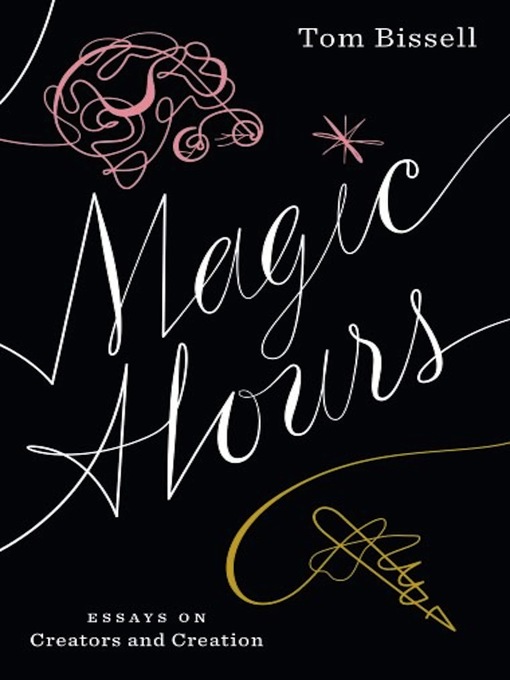
Magic Hours
Essays on Creators and Creation
کتاب های مرتبط
- اطلاعات
- نقد و بررسی
- دیدگاه کاربران
نقد و بررسی

Starred review from February 6, 2012
In essays spanning a decade, many previously published in Harper’s and the Believer, Bissell (Extra Lives) peels back the layers of what it means to create and the toll creation often takes on its practitioners. While writers and writing are by no means his only subjects, Bissell is particularly astute when it comes to the arbitrary nature of literary fame. In “Unflowered Aloes” and “Grief and the Outsider,” he considers the longevity of literary fame, and of works by the likes of Walt Whitman, Emily Dickinson, and Herman Melville that originally met with withering scorn. Bissell turns to the screen—and his tiny hometown of Escanaba, Mich.—in “Escanaba’s Magic Hour,” narrating both the evolution of a film shoot by “Movie People” (as outsiders, a common theme in the collection) and Bissell’s own relationship with the town of his birth. Documentary film is explored in “Rules of Engagement,” where the act of creating a compelling story—here documentaries depicting the Iraq war—is an exercise in both truth and fiction. Never pedantic or self-congratulatory, Bissell says that he never set out to write nonfiction, and perhaps it’s this backdoor approach that makes his observations on craft and the many avenues that lead to the written word all the more powerful. Agent: Heather Schroder, ICM.

Starred review from January 15, 2012
A whip-smart, occasionally pugnacious collection of essays on culture from a wide-ranging critic. In recent years Bissell (Extra Lives: Why Video Games Matter, 2010, etc.) has built a reputation as an expert on video games, culminating with the scattershot Extra Lives. Here he covers a wider swath but provides more coherence, in part because a more consistent theme emerges: the necessity of calling shenanigans on the artificiality of much of mass culture, and the difficult search for glimmers of integrity. In "Escanaba's Magic Hour," Bissell follows the filming of an indie movie in his hardscrabble Upper Peninsula hometown and cannily reveals subtle parrying between the townsfolk and the visiting filmmakers. In "Writing about Writing about Writing," he demolishes the rhetoric of how-to writing guides, slapping the genre for its disingenuously upbeat declarations. In "Cinema Crudite," he investigates the anti-genius of Tommy Wiseau, director of the contemporary camp classic, The Room. Bissell can tear into his subjects with a ferocity and brutal wit that recalls Dwight Macdonald, as when he writes about the would-be literary provocateurs of the Underground Literary Alliance or celebrated historian Robert Kaplan, whom he damns as an "incompetent thinker and a miserable writer." Bissell's more common tone, though, is that of the exasperated critic weary of conventional thinking, and he bookends the collection with pieces that drive that point home: "Unflowered Aloes" debunks the idea that literary greatness will always be discovered, and the closing interview with Jim Harrison is a lament for a dying working-class literary culture. Even the book's weak spots are strong: A pair of New Yorker profiles on TV and video-game professionals feel relatively voiceless--a problem with the magazine's house style that, ironically enough, Bissell calls out in an earlier essay. Stellar cultural writing--Bissell has the knowledge and wit to earn his provocations.
COPYRIGHT(2012) Kirkus Reviews, ALL RIGHTS RESERVED.

December 11, 2017
Fiction writer Bissell (Apostle) has compiled a series of his essays, ranging from brilliant to merely good, that were published between 2000 and 2016 in places such as Harper’s, the Boston Review, and the New Yorker. What draws them together, Bissell writes, is the “magic” of the creative process. The best essays include “Escanaba’s Magic Hour,” about a movie made in Bissell’s hometown in Northern Michigan, an essay that hits a perfect balance of pathos and humor. “The Secret Mainstream” nails filmmaker Werner Herzog’s unhinged brilliance, while “Grief and the Outsider,” about a group of renegade writers, moves from ridicule to self-awareness, generosity, and sensitivity. The opening essay, “Unflowered Aloes,” an elegy to writers who bloom unseen, is too relentlessly grim, while the final essay, Bissell’s introduction to a reprint of David Foster Wallace’s Infinite Jest, seems like a jigsaw piece from another puzzle. This is a male-focused collection, despite a few nods to female writers. The testosterone rises when readers encounter Jim Harrison shooting rattlesnakes in “The Theory and Practice of Not Giving a Shit” and, later, two dozen drawings of vaginas in William T. Vollman’s studio. One could be forgiven for wanting Little Women on hand for relief. Nevertheless, these essays are thought-provoking, and the best of them are worth the price of the book.

























دیدگاه کاربران